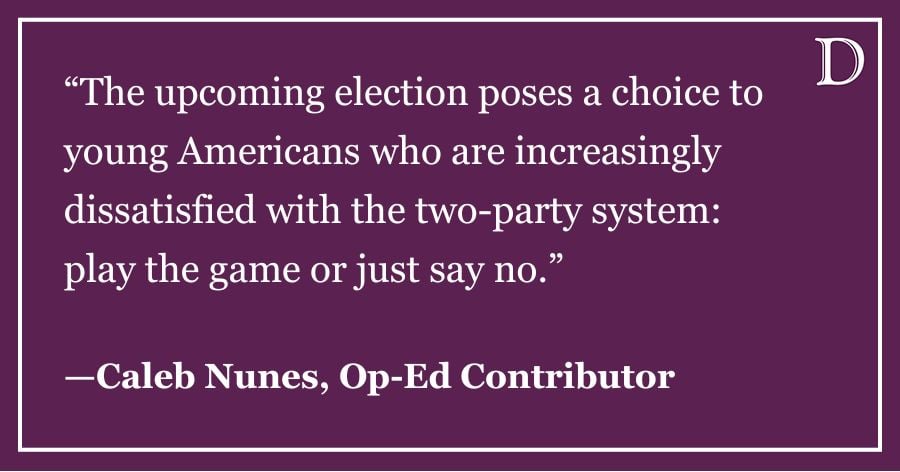A national election in Israel went by Tuesday without much international interest or the analysis that often dominates American politics. This was because the result of the Israeli election was no surprise to citizens of Israel or leaders around the world: Prime Minister Benjamin Netanyahu’s party, Likud-Beitenu, will receive 31 of the 120 seats in Parliament in accordance with Israel’s proportional representation system. However, the Likud party won many fewer seats than pre-election polls had anticipated, with many voters turning to a new centrist party, Yesh Atid.
While Netanyahu is the right leader for Israel at this moment in history, he must be willing to accept the rise of the centrist movement that was legitimized by the ascendancy of Yesh Atid. For Israel to solve the economic problems presented by a weakened middle class and high inflation, the right and middle must form a coalition. An alliance between the Likud party and Yesh Atid would stabilize Israeli politics and could lead to the resumption of negotiations with the Palestinians.
Israelis voted Netanyahu into office for a third time because they believe he understands how to defend the country and its citizens. Israel’s political culture has moved steadily right in the past 10 years due to the threats posed by Hamas in Gaza, Hezbollah in Lebanon and the nuclear threat of Iran. Support for the prime minister has remained constant due to widespread approval of his handling of Israel’s national security. This was exemplified in late November, when Netanyahu launched an aerial attack on Hamas leaders in the Gaza Strip. The military campaign was largely successful, stopping the rocket attacks that had terrorized citizens in Southern Israel.
Despite Netanyahu’s military success, Israel has experienced growing income inequality under his leadership, prompting 400,000 citizens to take part in mass protests in Tel Aviv throughout September of 2011. Yesh Atid was able to capitalize on Netanyahu’s economic failures, citing the current struggle of the middle class as a main social problem. A coalition between Yesh Atid and the prime minister will be able to better address these economic problems. Through policies that both Yesh Atid and Likud support, such as eliminating privileges for the ultra-religious and lowering house prices, Israel will again be united under a moderate government that most effectively represents the interests of the average citizen.
Much of what will happen in Israel in the coming years depends on the coalition Netanyahu forms. At the moment, it is hard to tell whether a Likud-Yesh Atid coalition will take action to resume the peace process. President Barack Obama has worked with Netanyahu over the past four years, yet the two leaders’ beliefs on how to achieve peace and Israeli settlements in the West Bank have largely differed. If Netanyahu maintains his conservative agenda, little will change domestically in Israel with regard to the settlement issue or negotiations with Palestine. If the Prime Minister is forced to moderate his policies, however, Obama may have the political leverage to pressure him to rethink his stance on current points of contention. Among these are a freeze of West Bank settlements and the state of Jerusalem as a shared capital between the two sides. Netanyahu will have to make compromises with the left-centrist opposition to maintain his authority and control of the Israeli government.
While Netanyahu could remain prime minister for up to four years, his power and popularity will be checked by a growing opposition to his rule in Israel and America’s interest in a more compromising Israeli leader. While Obama may privately support a more moderate Netanyahu working with a centrist Israeli government, for the moment, this coalition remains up in the air.
Jonathan Kamel is a Weinberg freshman. He can be reached at [email protected]. If you would like to respond publicly to this column, email a Letter to the Editor to [email protected].













